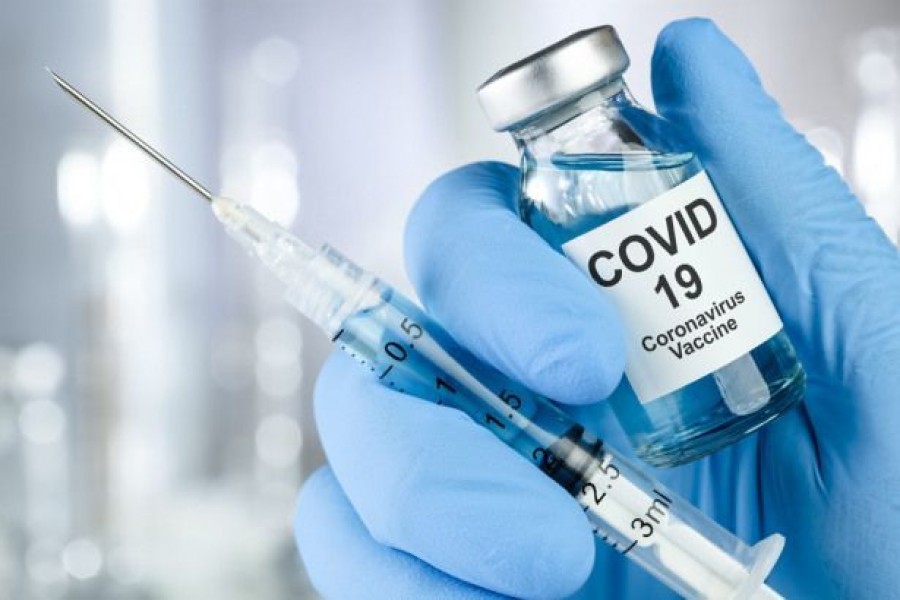
Published :
Updated :

Since the deadly pathogen SARS-CoV-2 started wreaking havoc across the globe, there has been an unprecedented race to develop vaccines to deal with the pandemic.
Because of notable scientific progress achieved in the recent decades, researchers in several countries could develop vaccines in a record time. Some of those have got clearance from the World Health Organisation (WHO) and a few others are awaiting the nod.
The pandemic has created a desperate situation for both rich and poor nations. But as always the latter remain far more vulnerable. They need the support of the nations that are affluent and technically and scientifically advanced.
Lately, China has emerged as a strong rival of the USA and its allies in Europe and Asia in trade and politics. China has been deeply engaged in creating its sphere of influence in Asia, Africa and Latin America and it has achieved notable access in its mission. Its Belt and Road Initiative remains at the forefront.
Even during the ongoing desperate time, the vaccine is being used as a tool in diplomacy. China and India are the two main actors in it. However, China has proved itself a superior player in this particular act.
Bangladesh caught up in the vaccine rivalry, is now in a difficult situation as far as its vaccination programme is concerned. Many tend to blame the government for failing to make a timely decision and depending on a single source for vaccine procurement.
It all happened in August last year. Chinese biotech company Sinovac had approached Bangladesh to do the phase three trial of its vaccine in Bangladesh and it was almost finalised that the International Centre for Diarrhoeal Diseases, Bangladesh (ICDDR, B) would conduct the trial. However, things took a different turn following a 'sudden' visit of a high-profile official of the Indian government. A section of the media started raising the safety issue of the vaccine trial and enthusiasm among the relevant government agencies on the vaccine trial issue also waned. Amid all these developments, the Beximco and the Serum Institute of India (SII) signed a deal on Bangladesh's priority access to the AstraZeneca vaccine which was under trial then.
Bangladesh, however, approached the Sinovac in October last year to start the trial. But the Chinese company wanted Bangladesh to bear a part of the cost of the phase-3 trial. The government declined the Chinese proposal and that was the end of it.
What happened next is known to everybody. A well-organised vaccination programme started on February 07 last with the Covishield, the brand name of AstraZeneca vaccine being produced by the SII. The Indian government delivered 3.2 million doses of vaccine as a gift to Bangladesh and the Serum 7.0 million in two instalments.
Now nearly 1.5 million people are unlikely to get the second jab on time as SII has stopped its supply of vaccine though Bangladesh has paid in full for 30 million doses of vaccine. Uncertainty over receiving the remaining vaccines looms large.
In such a situation, China has stepped in again. A deal is about to be signed within a few days with the Sinophram under which it would supply 30 million doses of vaccine within the next six months. Bangladesh is exploring the possibility of signing with another Chinese company to procure another 30 million doses of vaccines. Talks are on to start the production of a Chinese vaccine locally.
The SII, the world's largest vaccine producer, had made commitments far excess of its capacity. Moreover, the company, possibly, was not prepared for the ban imposed by the Indian government on vaccine export.
As far as vaccine diplomacy in South Asia is concerned, China has got an upper hand over its rival India. The devastating second wave has done all the damage to its ambition.
Last but not the least, Bangladesh's failure to secure even a small part of 80 million doses of AstraZeneca vaccines that the USA is sending to affected countries might be considered its diplomatic failure by some.


 For all latest news, follow The Financial Express Google News channel.
For all latest news, follow The Financial Express Google News channel.